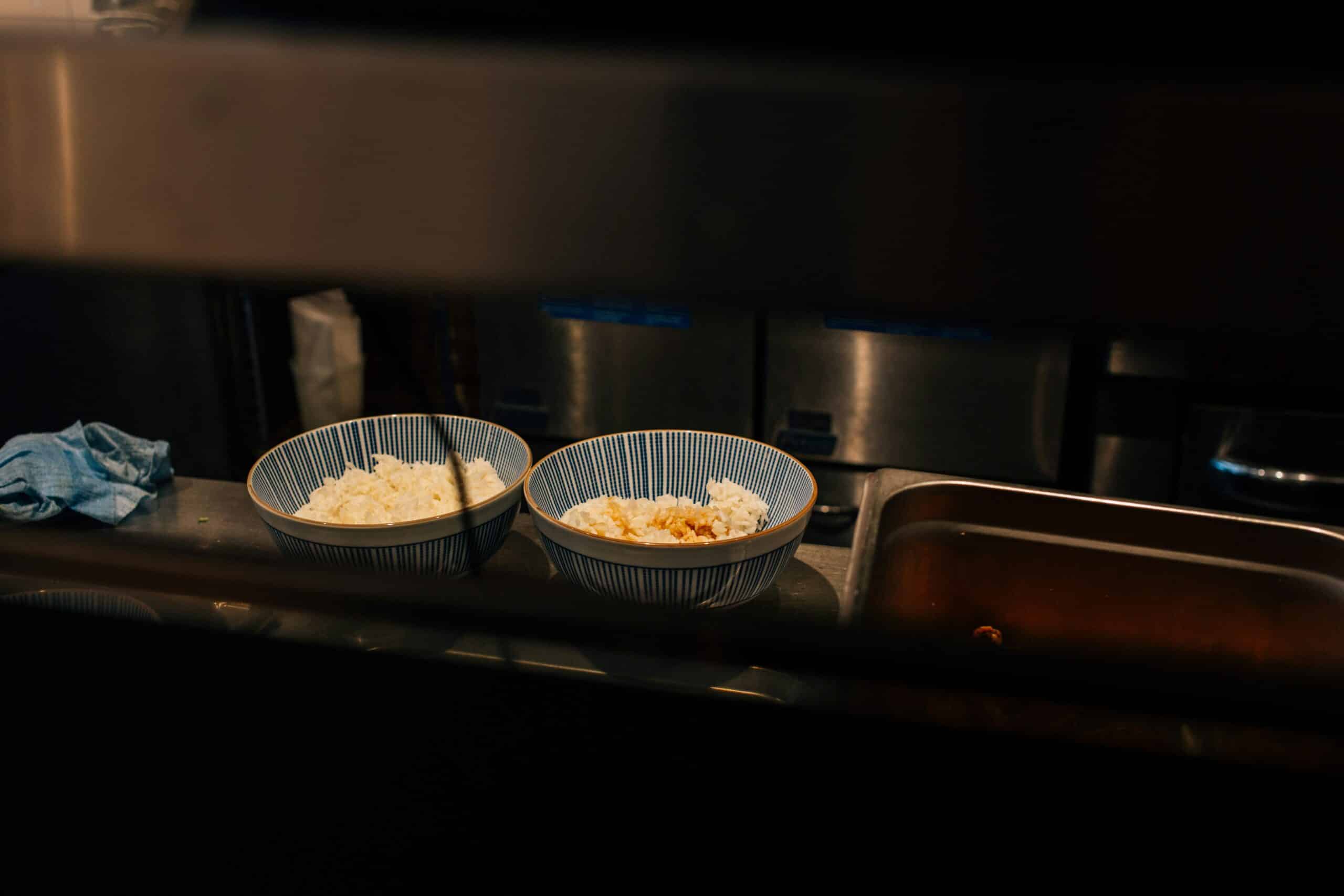
LOS ANGELES—The ring bearer was a dog, a shih tzu chihuahua mix named Kura. The flower bearers were his sister Moya and girlfriend, Kaya, both Maltese poodles. Chaperoning them on the grassy expanse of Ernest Debs, near Highland Park in Central Los Angeles, were their humans, because this was, of course, a wedding of humans.
The bride, Imma Kaamiño, a human resource professional from the Philippines, was barefoot; so was the groom, Sirach Fortuna, a Filipino American accountant working in the inner sanctums of Hollywood.
Their wedding socks and shoes, which they would put on each other as part of the outdoors ceremony, were carried by friends in the entourage, who all marched to the tune of “Somewhere Over the Rainbow.”
What was supposed to be a simple wedding for a handful of guests became a public moment of rainbow pride with some 50 family members and friends in attendance, a rather large gathering during this pandemic.
The guests were themselves event collaborators. They procured the decor and did the production design free of charge; they brought the flowers. When the photographer commissioned for the event tested positive for COVID-19, the groom’s former husband promptly volunteered to do the photography.
Over coffee and Filipino kakanin afterward, Imma and Sirach told me that the choice of the great outdoors venue and the ceremonial putting on of socks and shoes were all “symbolic of our love for travel.”
But then again their love for each other traveled not just through places—the Philippines (where they met); Australia (where Sirach proposed and Imma demurred at first before finally making up her mind); the United States; and Mexico (where they honeymooned)—but also through time and, well, gender.

It started in Cebu
Their love story began 22 years ago when a girl met another girl at a bar in Cebu City.
This was at Rhythm and Brews, a popular go-to among the young crowd because the management didn’t mind that their orders swung wildly from tequila (Jose Cuervo, when they had money) to Tanduay Rhum (when they were short on cash, which was most of the time).
“My father had just passed, I was going through a breakup with my first boyfriend, and I had just quit my first job,” Imma said. “I was trying to drown my sorrows away. I could not find anchor in my friends because many of them were also lost at the time, holding on to beer bottles for dear life. That was when I met Giselle May.”
Giselle May was a film student from University of the Philippines in Diliman, and had gone back to her hometown of Cebu to handle film projects from her startup’s burgeoning clientele in the island metropolis.
“She exuded the confidence that my friends and I lacked,” Imma said. “She talked sense and was brimming with ideas that were not only fresh but were also sound. And she had a thriving business. She infected me with her enthusiasm about life. She made me step out of my grieving and embrace life again. And the long and short of it is that now we’re married.”
Sirach laughed and confided, “Giselle May was me in another lifetime. But since I was a child, I wanted to be a guy. I felt I was a guy. I could chug a beer at 5 years old.”
When Giselle May was caught playing marbles with boys in school, that was the end of co-ed schooling. “My mom, who was the principal of a seminary high school, was horrified and convinced my dad to transfer me to an all-girls’ school. But I kept in touch with my boy pals, and I continued to rent comic magazines with the gang at 25 centavos each.”
This appetite for visual storytelling led to a desire to join what was then the mostly men’s club of filmmaking. From UP Diliman’s film school, Giselle May enrolled at UP Cebu’s Mass Communications program.
“I was busy juggling classes and video projects for my own company, and Imma started bringing me breakfast, lunch and dinner wherever I was,” Sirach said. “She would also invite me to her place—she was staying at her sister’s apartment—and make me eat food she prepared herself. This went on for a good few months. We became part of each other’s lives.”
And together they were for the next four years. But then Giselle May moved to the United States.
Sirach said, “The plan was for Imma to follow me to the US on a student visa. I was taking care of everything. I asked her to email me her resume.”
When Sirach trailed off in this recounting of events, Imma piped in: “At the time I was writing a digital journal. I was still missing my dad, and trying to make sense of my life, and writing a journal was part of my healing. I accidentally emailed my digital journal, too.”

Pact
The thing was, with Giselle May away, Imma began seeing someone who would become her new boyfriend. She wrote about him in her journal.
“I knew the guy, I even told them if they were together to please tell me,” Sirach said. “When I read the journal I was thinking, Why didn’t you tell me the truth? I basically cut ties with her.”
Sirach continued: “I blocked her online but not on the phone. A few months later, she called me. She was crying because she and the guy were having issues. So we reconnected. That became our new thing. When she needed help and a shoulder to cry on, I was there for her.”
“We were there for each other during major moments in our life,” Imma averred. “Happy or sad moments, we shared them, and we remained friends from a distance.”
Sirach said, “From the States, I sent her her favorite Speculoos spread, and whenever I was back in the Philippines, which was almost every year, we would take a trip together, catching up on each other’s lives.”
Somewhere along the way, they made a pact that if they reached 45 and were unmarried, they would tie the knot themselves. They nonetheless moved on to other partners, other career paths. At one point, one of them became what they termed “a runaway bride,” calling off the wedding a month before the scheduled date.

Transition
Sirach’s first girlfriend in the US was a facilitator for trans men. “That’s how I got exposed to the movement,” Sirach said. “In 2014, I went into therapy for transitioning. The following year, I sealed the deal to fully transition. I began testosterone hormone therapy. I had top surgery, which removed my breasts. And then I underwent total hysterectomy, my biological female taken from me—from the uterus to the ovaries.”
In 2017 came the official name and gender change. Recalled Sirach, “Sirach is one of the deleted books in the bible. It’s a book of wisdom in the deuterocanonical. It was a name I wanted for my future child. But I realized I would never have a kid so I gave the name to myself.”
That same year, Imma moved to Australia for a new job. She didn’t know anyone there, and in the matter-of-fact way of intimates, Sirach asked his cousin in Australia to pick up Imma at the airport.
Just before the pandemic struck, Sirach flew from the US to Australia to surprise Imma on her birthday. They took a trip to Tasmania and went to hear Mass in a Catholic church named after the Immaculate Conception.
“I was born on the Feast of the Immaculate Conception, and I thought the coincidence of the church’s name was a sign, a cosmic alignment of sorts,” Imma said. “I prayed that I would soon get married.”
As if on cue, Sirach asked for her hand in marriage during that trip. For some reason, Imma initially turned him down.
When Imma couldn’t pin down what brought about her refusal, I asked her to walk me back through her family background. Her hometown was a close-knit Roman Catholic community. Her mother was said to have been on the path to becoming a nun before marrying the scion of a prominent family in town. But she continued to teach in the Catholic school run by nuns. Imma remains close to her sister, who runs her own advertising agency in Manila, and her brother, who keeps their mother company.
“Theirs is a close-knit family,” Imma’s schoolmate and childhood friend Marie Reine Mosqueda told me via Messenger from Imma’s hometown, Oroquieta City. “You must understand, too, that this is a very conservative community. Many of our community members grew up under the strict aegis of Madam Principal, which is how we still call Imma’s mother even though she has long since retired.”
Wedding at a park
Thwarted, brokenhearted, Sirach left Imma in Australia. But in the next few months, as COVID-19 ravaged the world, Imma came doubly face-to-face with mortality: She was diagnosed with pancreatic cancer.
“During that harrowing time, Sirach was there for me every step of the way, although only virtually,” Imma said. “The pandemic made us realize what was essential, and my own health crisis revealed to me not only that Sirach was essential in my life but also that I was essential to his life. That’s when I said yes to him.”
“I’m happy she has found her happiness,” Marie Reine said.
And so it was that as the pandemic waned and the world stirred to wake up to a new day, in the heart of the city of angels and of happy Hollywood endings, Imma married Sirach, the man her ex-girlfriend has become. Walking down the aisle were Sirach’s parents and Imma’s aunt, uncle and cousin. (Imma’s mother and siblings were locked down in the Philippines, but joined the ceremony via Zoom.)
But this LA story gets an LA ending. The morning after the wedding at the park, when all the hullaballoo had popped and petered off, and the newlyweds were splayed on the floor in their apartment, quietly, groggily opening their gifts, they found a tiny red box with a handwritten note on a whole page unceremoniously ripped from a blank notebook. It read:
“Congratulations on your Big Day!
“I am very sorry about all the noise this past year. It is very hard over here and can be pretty stressful. I deeply apologize for any extra stress I caused you. I had no idea how much [stress] you were under already. Please accept this gift as my not apology but gratitude (for not killing me and Jason) and celebration of your new life with your partner. I wish you many happy years together! Thank you for being so kind to us. I think of you as a friend.”
It was from Bonnie. Bonnie and Jason are the homeless couple nesting outside Sirach’s garage. (“That’s one of the things I still have to get used to about LA—how poverty blights this global capital that is home to Hollywood,” Imma rued.)
Inside the box were a pair of studs and a pair of earrings, fine silver-plated and made with Swarovski crystals—a his-and-hers for Sirach and Imma.
Apparently, despite all odds, love is all around us, and Imma has since worn the earrings with great pride. —CONTRIBUTED














































